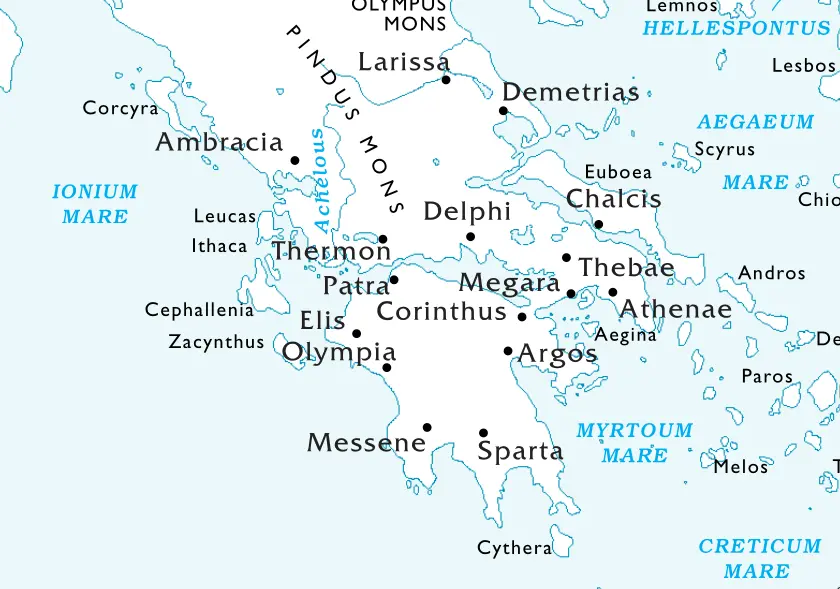THE PLAGUE OF THEBES
Sophokles, one of the most noted playwrites wrote the tragedy of Oidipus Rex around 430-430BC. In his play he describes how the city of Thebes is struck by a deadly disease casted upon its citizens by the gods. The city’s ruler Oidipus - sending his brother-in-law to the oracle of delphi - asks the gods for help. When Creon returns, he exclaims the city was hit by “miasma” because of religious pollution. Oidipus, unsure of what to summons and asks the blind Tiresias for help. The prophet tells him the reason for the god’s punishment was Oidipus himself. Thereafter, the climax of the play takes place.

HISTORY OF PLAGUES⌗
The word plague is often used synonymously for a multitude of conditions. The classic bubonic plague, (Yersinia pestis) which is transmitted by fleas. There are two more forms, depending on the infectious route respectively (septicemic and pneumonic plague). Yersinia pestis in its bubonic form made three epidemic appearances after the begin of christian time measurement. Firstly, it appeared in 542 (called the Pleague of Justitian, name by the byzantine eperor), Secondly in 1347 when it gained its name “Black Death” (the bubonic plague) killing one third of european population. Interestingly, the epidemic started with the mongolian siege of Caffa (Crimea), when mongolian besiegers after suffering from the diseases outbreak would catapult infected over the walls of Caffa. This clearly malicious tactique was the first noticed occurence of biological warfare.1 Thirdly, the disease appeared in 1894 in southwest China.
THE GODS’s PUNISHMENT⌗
During the first third of the play a description of symptoms of the plague is given: It is addressed as a “weltering surge of blood”2 and declared to be of zoonotic origin (“a blight upon the grazing flocks and herds”). Also its mortality impresses the play’s protagonist. The city is described to be filled of moaning women lying at the altar’s stairs crying and praying. Further, the infection is described to cause abortions (“earth her gracious fruit denies”, “women wail in barren throes” [lines 151,215]). In the choice of words the knowledge for a causative factor is revealed. Therefore Thebes faces a highly contaginous as well as deadly disease. Interestingly, the god Ares is held responsible for the disease outbrake, hereby linking the outbrake to the shortly prior Peloponnesian war (431-404 BC.). The city’s population tries to soothen the gods with prayers and sacrifices but the disease remains incurable. Parallely Athen too suffered from an epidemic outbreak appearing shortly after the Spartans conquer greece. The historical evidence is however of different matter as it exists not in a play but scripture meant for historical record.
POSSIBLE PATHOGENIC CAUSES⌗
In respect to symptoms mentioned in Sophocles play multiple pathogens appear to be the potential reason for the epidemia. The general clinical picture is one of a cattle related zoonosis, highly contagious, abortion disease. Pathogens matching these symptoms are Leishmania spp., Leptospira spp., Brucella abortus, Orthomyxovirus and Francisella tularensis. However, Leishmaniasis is not highly contagious, smallpox is no zoonosis and Tularmia is transmitted via rabbits. Leptospirosis epidemics are usually linked to prior floods, which would be likely mentioned in the the play. Therefore, Brucella abortus is the most likely causative microorganism.
Uncertainties⌗
We evaluated B. abortus to be the most likely pathogen described in Sophocles drama, some factors just won’t match. While by today Brucellosis is still a severe granulomatous disease, it is neither as contagious nor as deadly as described in the play. An explaination of this difference may be an potential mutation of the Brucella species or an epidemia caused by two pathogens at once. Nevertheless until new findings warrant a reevaluation a logical consens has been found.